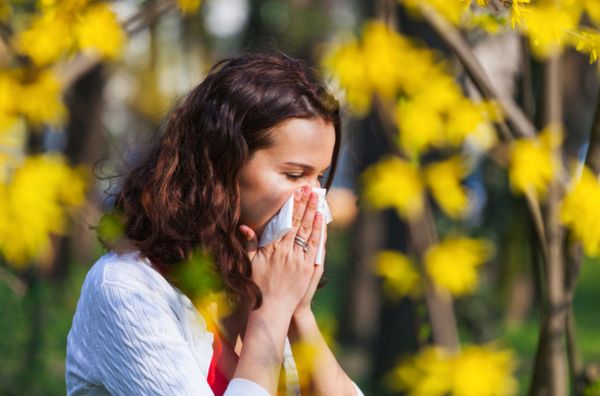For many Floridians, the arrival of spring signals the onset of allergy season, a time when the warm climate and high pollen counts combine to make daily life uncomfortable for allergy sufferers. Here’s what you need to know about managing seasonal allergies in Florida, including tips and treatments to help you breathe easier.

Spring Allergies in Florida: What to Expect
Spring in Florida is notorious for high pollen levels, primarily from trees such as oak, pine, and birch, as well as grasses. The warm, humid climate not only allows for a longer growing season but also contributes to the increase of mold spores, another common allergen.
El Niño: A Climate Phenomenon Affecting Allergies
El Niño is a climate pattern that occurs in the Pacific Ocean but has widespread impacts on global weather and climate. It is characterized by the warming of ocean surface temperatures in the central and eastern Pacific, leading to significant changes in weather patterns across the globe.
Impact on Florida’s Allergies
During El Niño years, Florida can experience increased rainfall and warmer temperatures. These conditions can lead to a surge in pollen production as plants respond to the favorable growing environment. The result is a more intense allergy season, with higher pollen counts and more severe symptoms for those with pollen sensitivities.
Tips for Managing Seasonal Allergies
- Stay Informed: Keep track of pollen forecasts in your area and plan outdoor activities when pollen counts are lower, typically on rainy, cloudy, or windless days. Click here for a pollen forecast.
- Create a Pollen-free Environment: Keep windows and doors closed during high pollen days to prevent allergens from entering your home. Use air conditioning in your home and car to filter out pollen.
- Practice Good Hygiene: Shower and change clothes after spending time outdoors to remove pollen from your skin and hair.
- Wear Protective Gear: Consider wearing sunglasses and a hat when outside to keep pollen away from your eyes and hair.
Treatments for Seasonal Allergies
While avoiding allergens is a crucial step in managing seasonal allergies, sometimes it’s not enough. Here are some effective treatments:
- Over-the-counter Medications: Antihistamines, decongestants, and nasal sprays can provide temporary relief from allergy symptoms.
- Prescription Medications: For more severe allergies, prescription medications or nasal sprays may be necessary.
- Allergy Shots (Immunotherapy): For long-term relief, allergy shots can help your body become less sensitive to pollen and other allergens.
- Sublingual Immunotherapy: Allergy tablets or drops are placed under the tongue as an alternative to shots.
Beyond Spring: Allergies in Other Seasons
While spring is a peak season for allergies in Florida, other seasons bring their own allergens. Summer continues with grass pollen, while fall introduces weed pollen, such as ragweed, into the mix. Winter, though milder, can still pose challenges indoors with dust mites and pet dander.
Get Ahead of Seasonal Allergies in Florida
Navigating seasonal allergies in Florida requires a proactive approach to understanding and managing your triggers. By staying informed, taking preventative measures, and seeking appropriate treatments, you can minimize the impact of allergies on your life.
At Florida E.N.T. & Allergy, we’re committed to helping you find relief from seasonal allergies through personalized care and advanced treatment options. Don’t let allergies hold you back from enjoying the beautiful Florida weather. Contact us today to learn more about how we can help you manage your seasonal allergies effectively.

